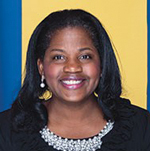On Leadership: Leadership skills of the future – do you need to be a superhero?

This week, I’ll be attending a reunion of my business school class, so I’ve been thinking a lot about how different business and leadership were in the 1990s compared with today. Our MBA curriculum focused on general management: finance, accounting, production/operations and other traditional skills of commerce. Most of my classmates scoffed at the one organizational behavior class we had, and topics like DEI, technology, entrepreneurship or cyber-security were hardly part of the syllabus.
The world of work has changed dramatically in just a few decades and the pace of change is accelerating every day. Leadership skills of the past are not enough. Today’s workplace requires that leaders must possess all the traditional skills, but also navigate hybrid work, matrixed structures and global uncertainty, all while being inclusive and authentic. That did not ever come up in my MBA program. In short, being a leader today requires so many skills, it almost seems like you have to be a superhero.
Since none of us are or should aspire to be superheroes, how do we narrow down the most important leadership skills for the future?
The World Economic Forum released a list of the Top 10 Job Skills For 2025, which says future leaders will need the following: analytical thinking and innovation; active learning and learning strategies; complex problem-solving; critical thinking and analysis; resilience, stress tolerance and flexibility; creativity, originality and initiative; social influence; reasoning, problem-solving and idea generation; technology design and programming; and emotional intelligence. A recent Forbes article maintains that the single most important leadership skill is self-leadership — the ability to demonstrate self-awareness, emotional intelligence, inclusion, mindfulness, empathy, social intelligence, and learning agility during challenging and complex situations.
Successful leaders must now possess a combination of hard and soft leadership skills. The main difference between the leader of yesterday and the leader of tomorrow seems to be the ability to analyze, learn and shift – using an emotionally intelligent approach.
In short, leaders of the future do not need to be a superheroes; in fact, we need to be more human.
I turned to top local leaders for their thoughts on what skills will be particularly important for leaders to build effective cultures in the future.





Critical skills for the leader of the future:
Active listening and communication: “We want to communicate with clarity, and that means listening to understand instead of listening to reply,” says Rommel, who says if we take the time to understand how our teams are feeling, we can more effectively communicate with them.
Self-confidence: “Exhibit the strong self-confidence of a pack leader,” says Abbas, noting that while this may seem at odds with showing vulnerability, teams look to someone who can protect and lead through uncertainty, as well as being able to empathize and relate.
Prioritization of the human aspect: In a world informed by the life-and-death lessons of the pandemic, leaders will need to hone the ability to prioritize and “always put the human aspect first,” says Sanchez. Dickinson concurs, noting that leaders need to “lead by example and demonstrate that it’s not a sign of weakness to take care of the mind in the same way we take care of our body.”
Awareness and empathy: “Leaders need to be aware of their surroundings, recognizing that what’s happening outside of the business can impact our associates,” says Rommel. “We must acknowledge the disruption from the outside and offer support on the inside.”
Inclusion: “It’s urgent that leaders understand the role of DEI in the workplace, that they meet others where they are in their journey while also sharing their own,” says Dickinson. Harvey echoes this, saying: “Leaders in the future should be intentional in ensuring that those employed as part of the workplace team are not only a “good fit” for the team, but most importantly that each team member believes themselves to be an invaluable member of the team.”






